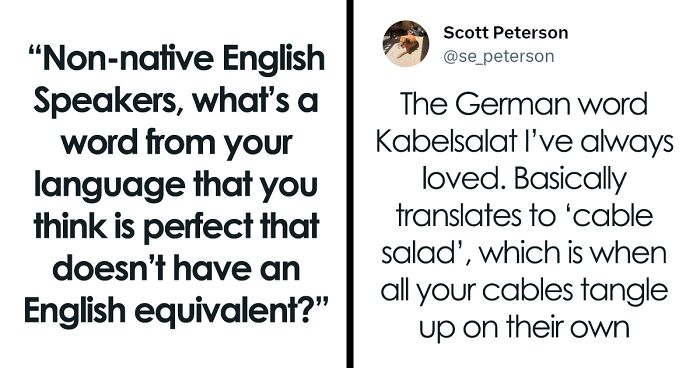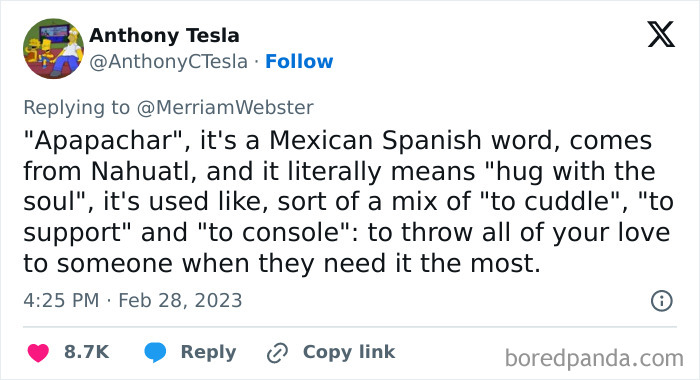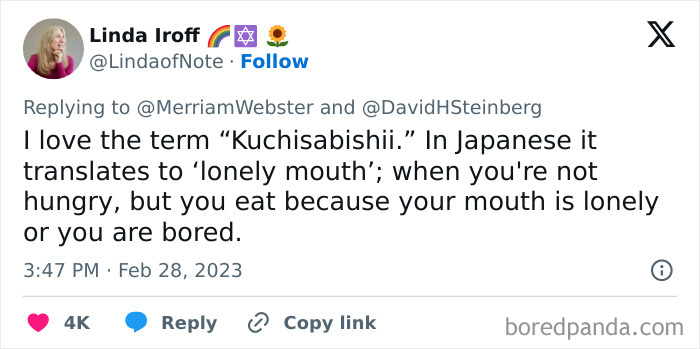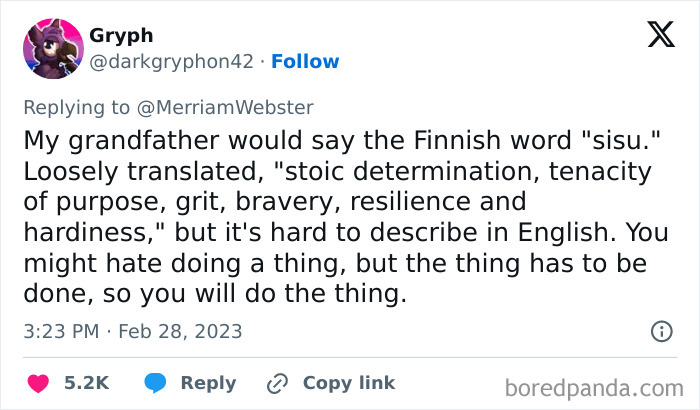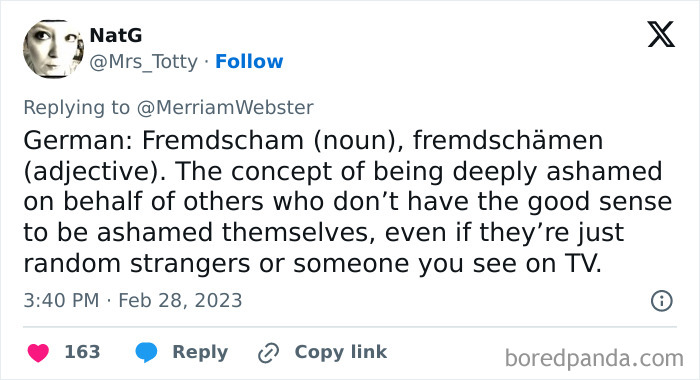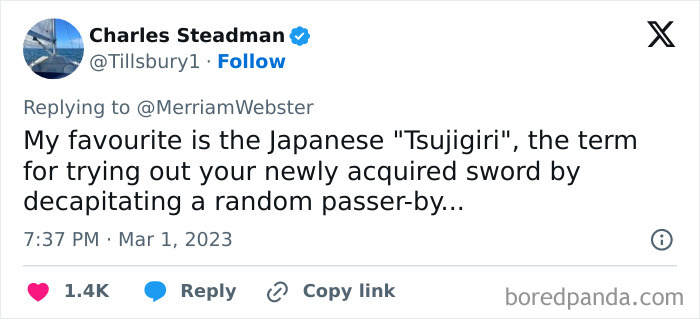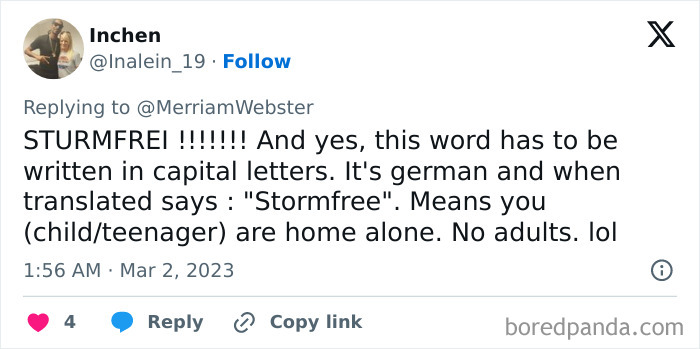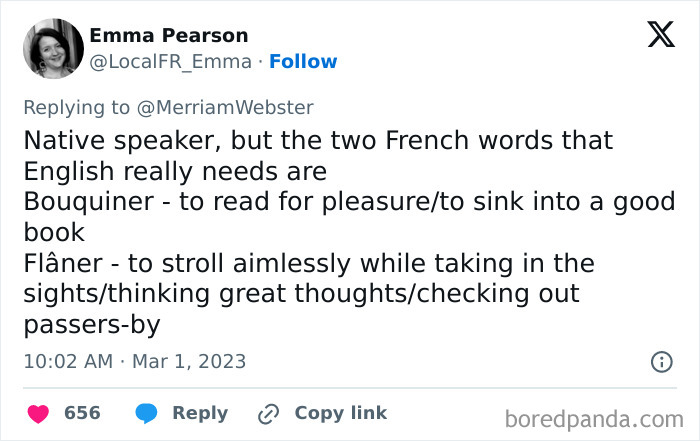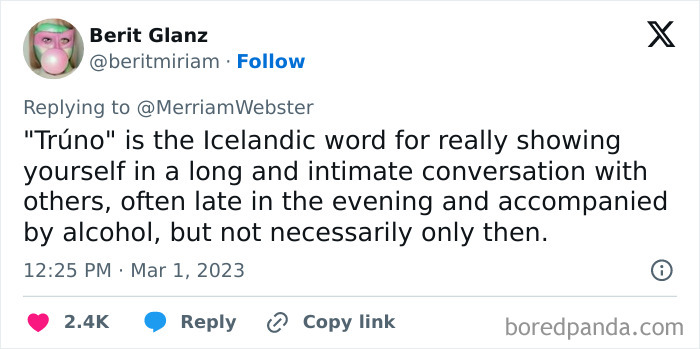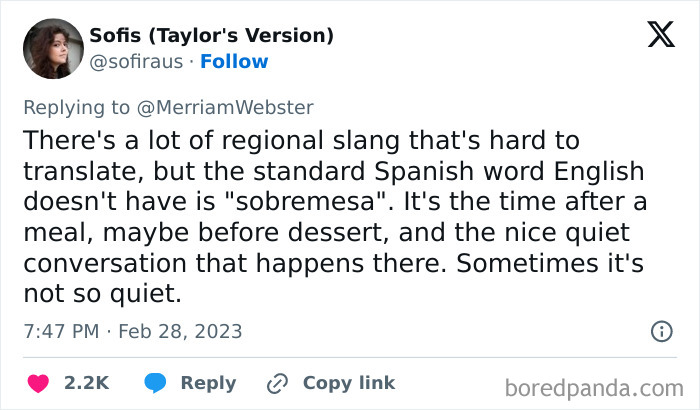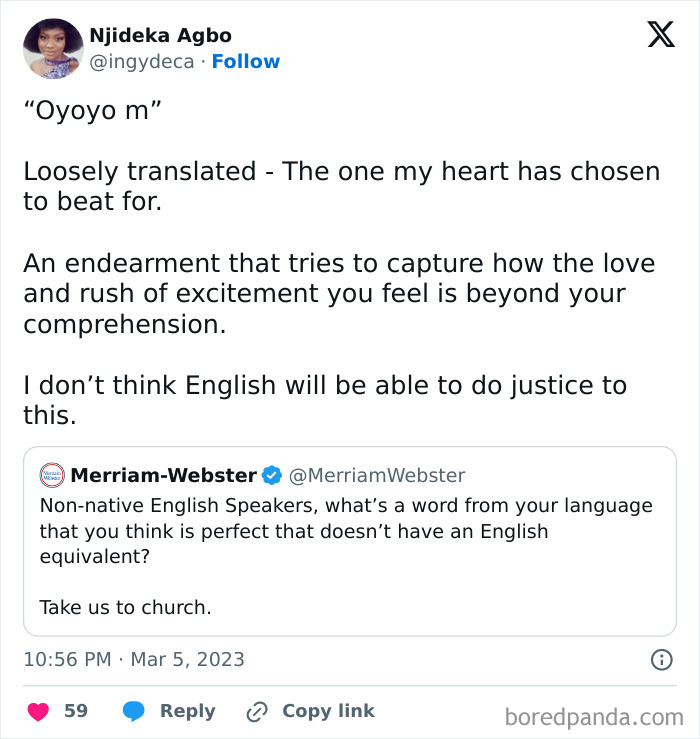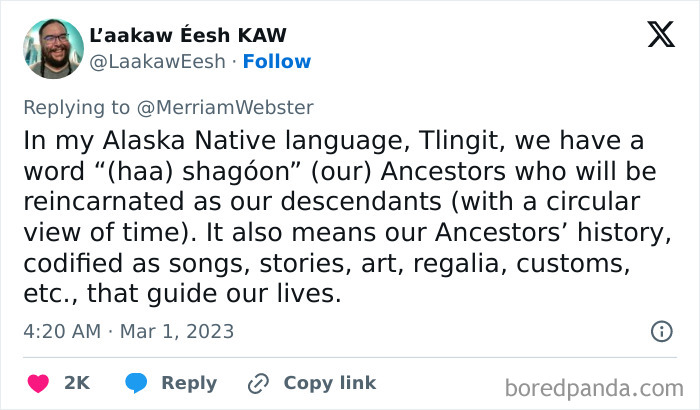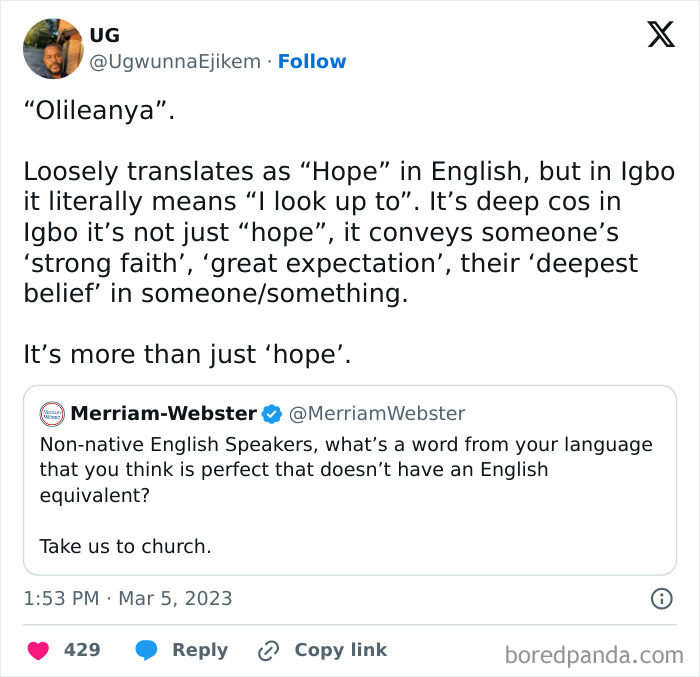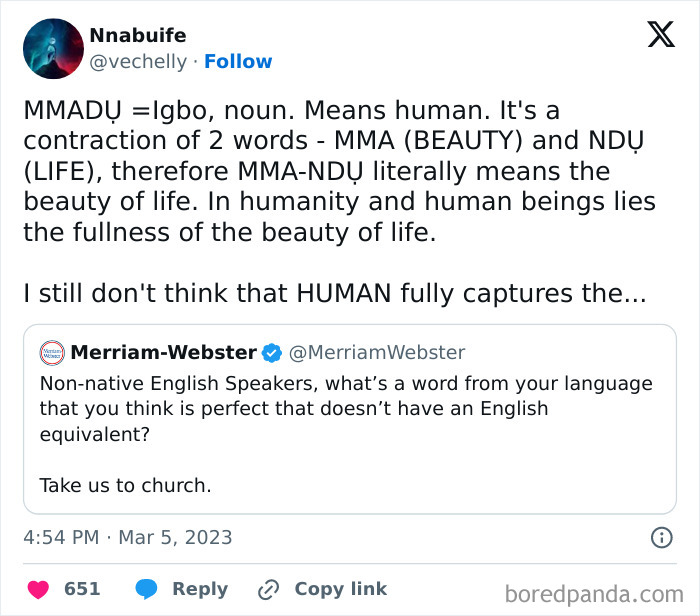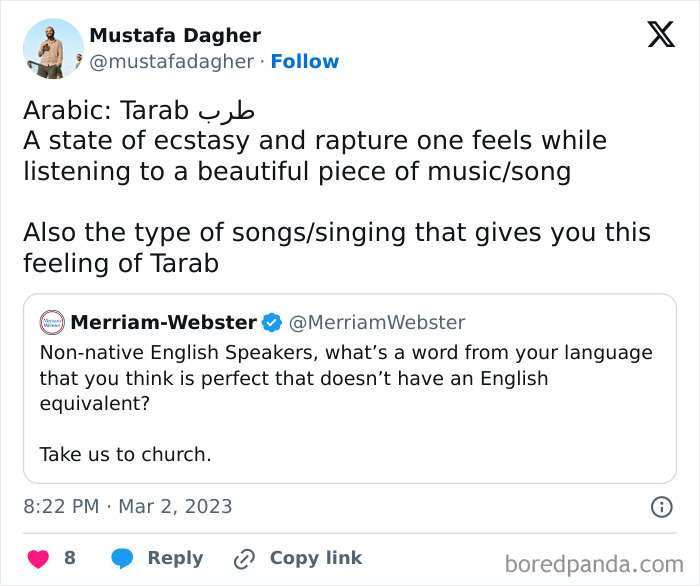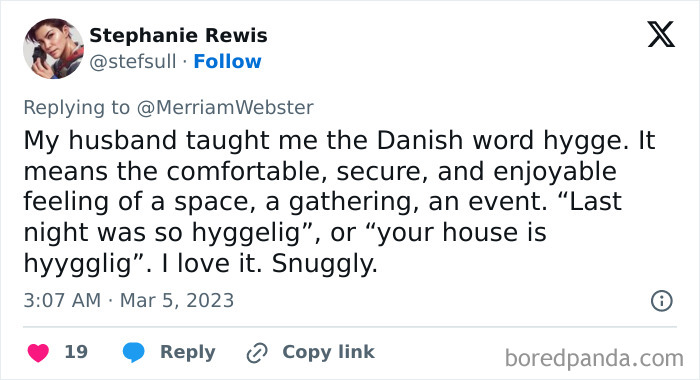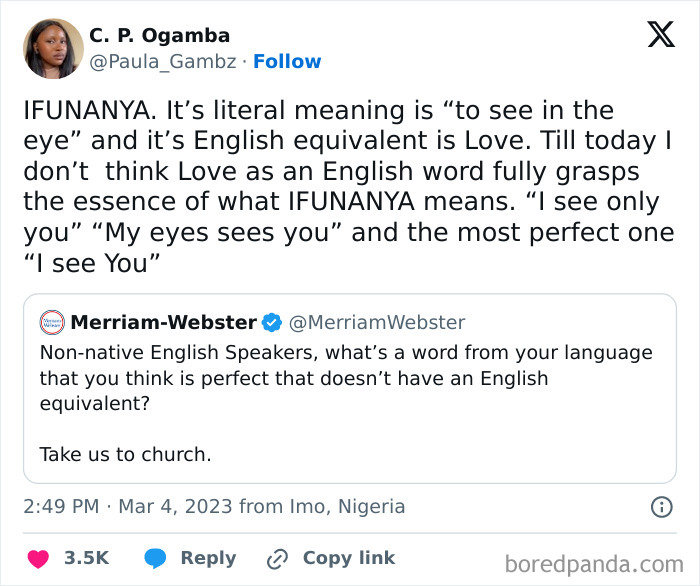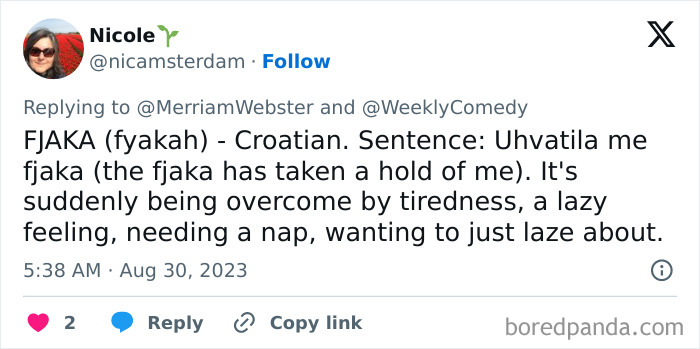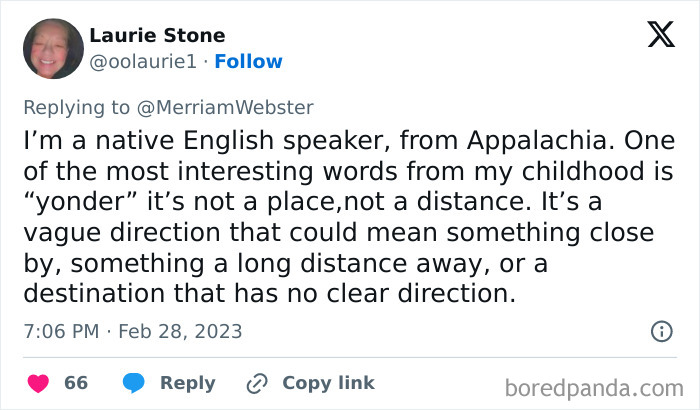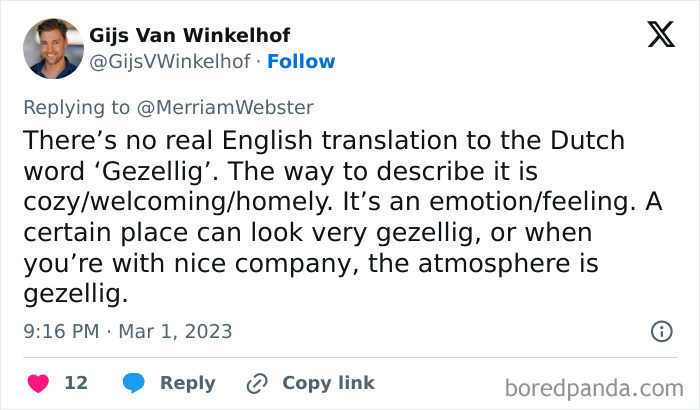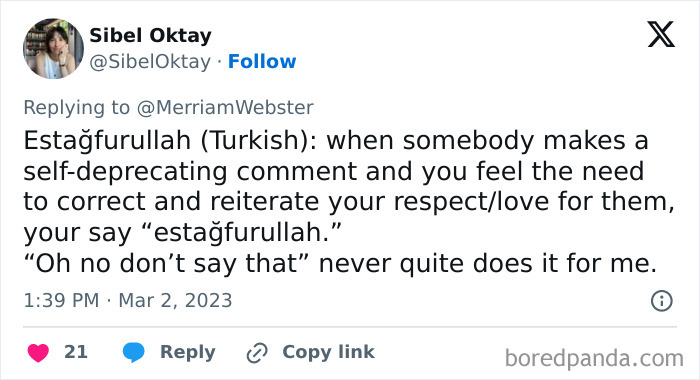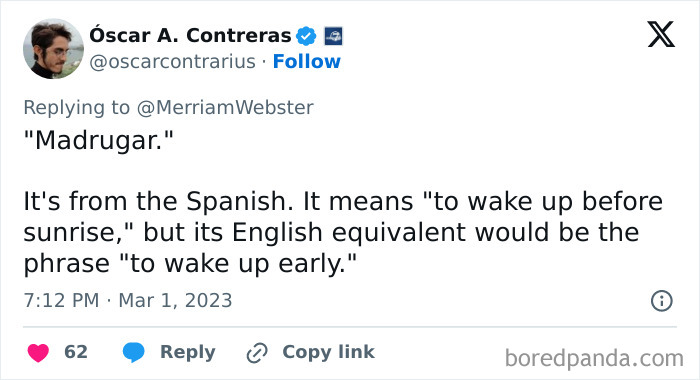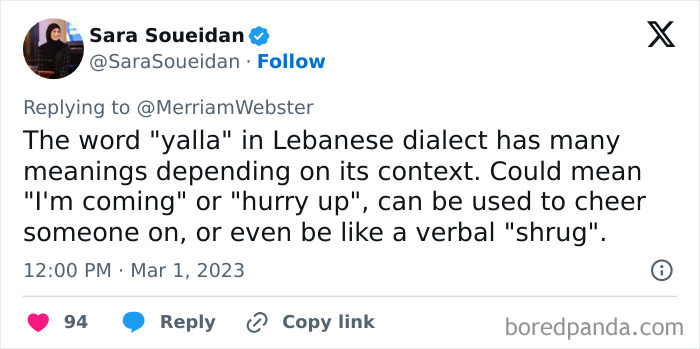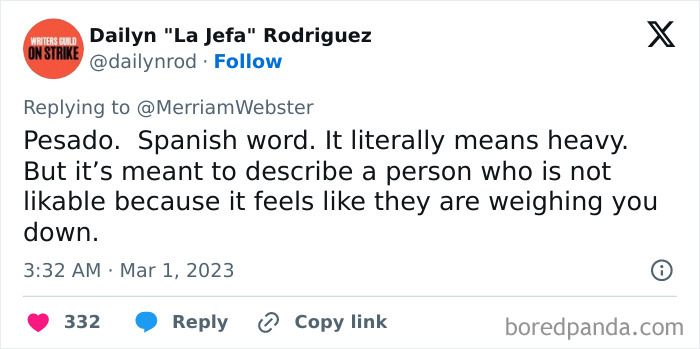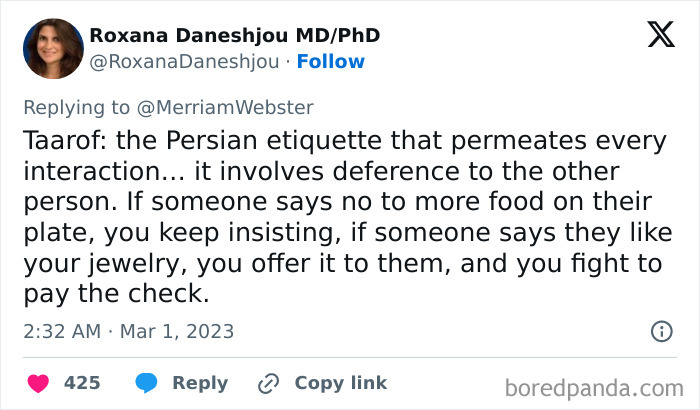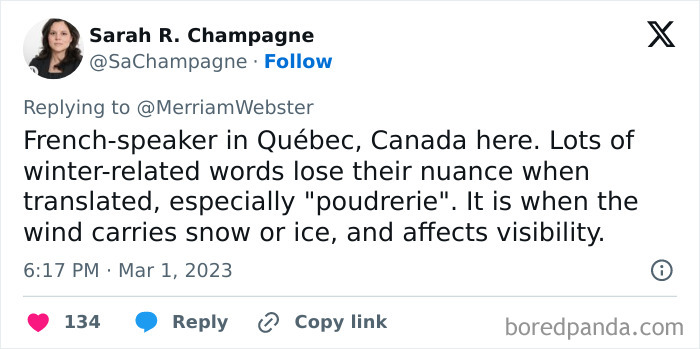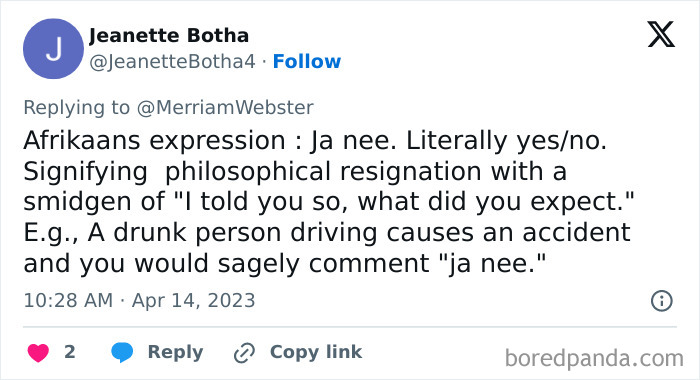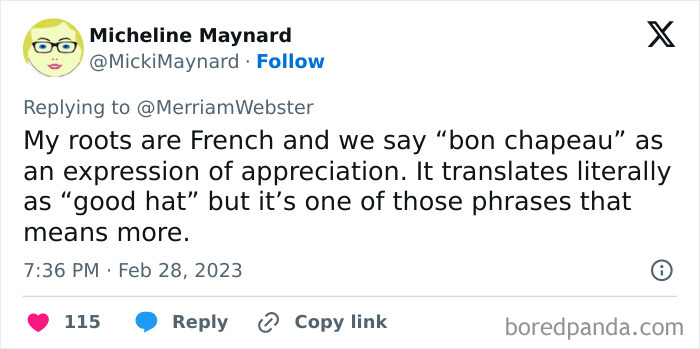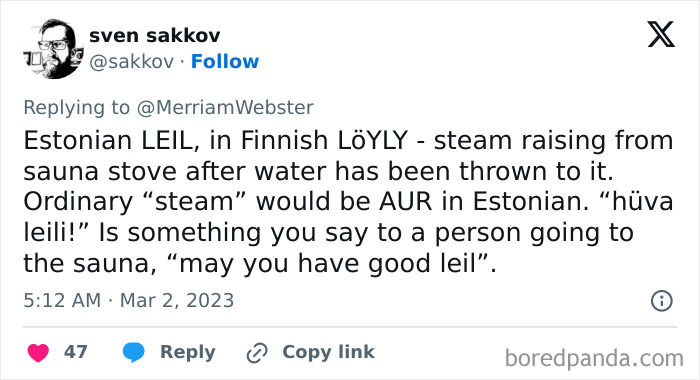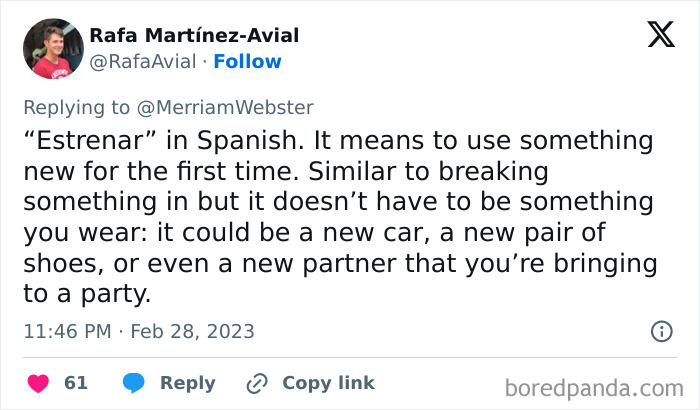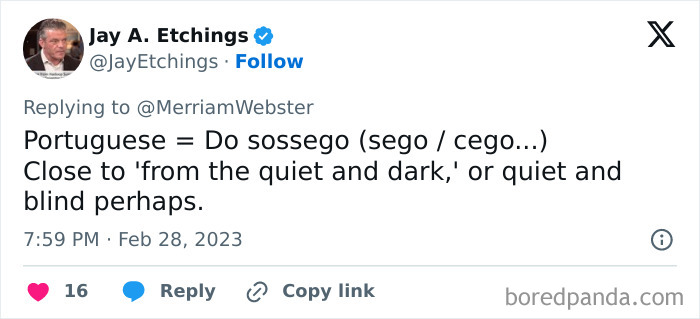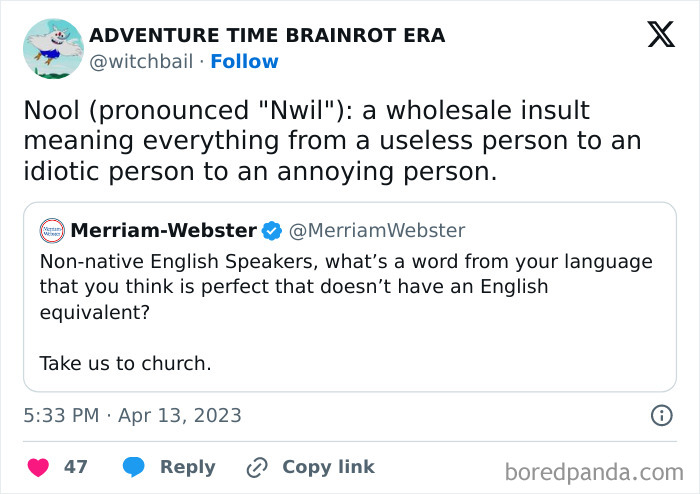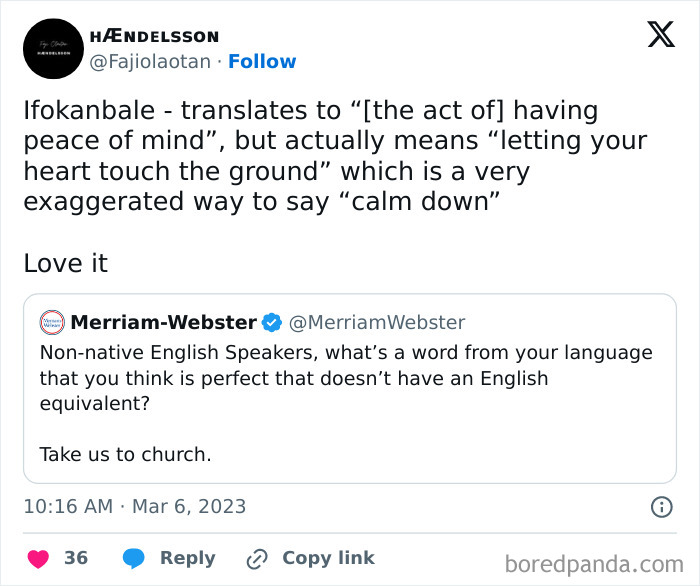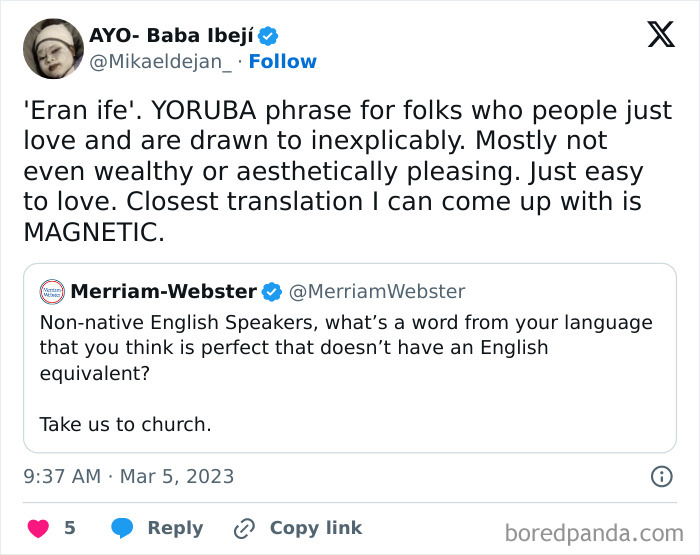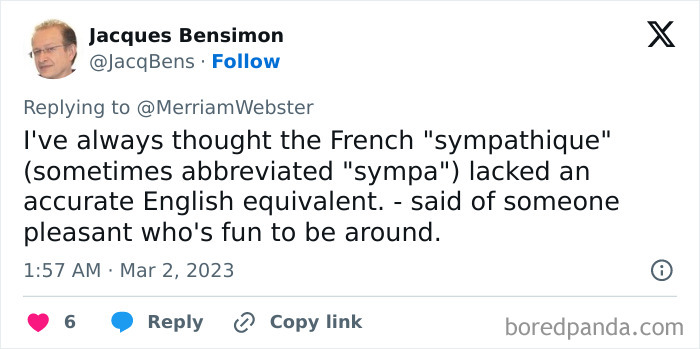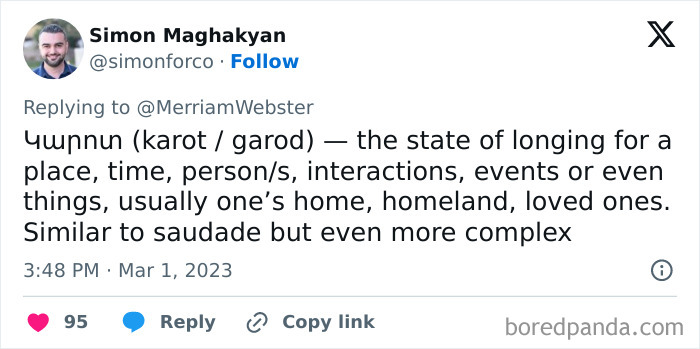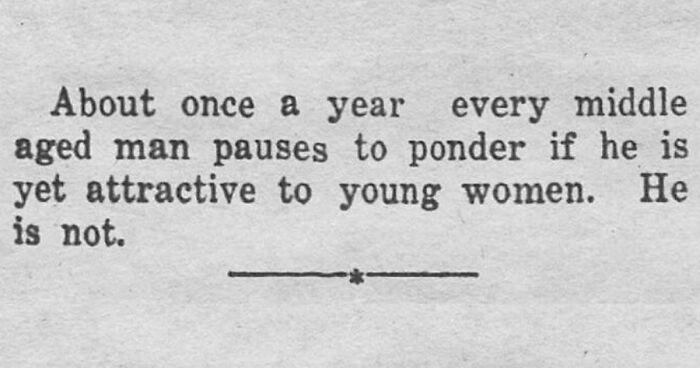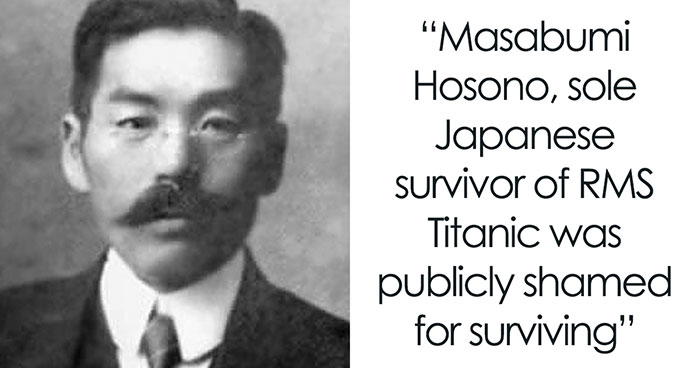The world is a wondrous place, filled with breathtaking landscapes, rich cultures, and diverse people. While English serves as the global language that allows us to communicate with each other while traveling or connecting with friends from different nations, wouldn't it be amazing if we could effortlessly switch to the local language of the country we're visiting? Imagine immersing ourselves fully in the experience and expressing our thoughts with words that may not even exist in the English dictionary.
We've compiled examples of distinct words from Merriam Webster's Twitter thread, spanning different languages and often lacking direct English equivalents. These words are paired with their English meanings for clarity. Ranging from cozy and amusing to slightly weird, these words capture many unique situations. So, let's all have a "hygge" (the Danish word for cozy snug time) and start this philological journey together.
This post may include affiliate links.
While the English language boasts a vocabulary of over 750,000 words, it doesn't always provide the most fitting terms for every concept or emotion. The idea that Eskimos have countless words for snow might not be entirely true – in this instance, their languages actually have about as many snowy synonyms as English. However, it's still clear that a culture's language can be really interesting and revealing. For example, Italians, who enjoy longer meals, have a word for the circle of moisture left by a glass on a table.
Linguists face a big challenge when they need to translate words that don't have an exact match in another language. These are called "untranslatable" words. It's hard to express the exact meaning and feeling of these words in a different language, so translators have to be creative to solve this problem. Let's see why some words are untranslatable and how translators can handle this tricky task.
In cultures with deep histories and traditions, some ideas need special words or pictures that are unique to that culture. This is especially the case for sayings that might lose their real meaning if translated exactly into other languages. In these situations, skilled translators find different ways to explain these ideas without translating the words exactly. They might use words that mean the same thing, or they might compare the idea to things everyone knows to make sure the message gets across just right.
When you learn a new language, you dive into a culture. You're likely to explore a country's history, language, and traditions – things you might never have discovered otherwise. This leads to a deeper appreciation for that place. You'll also understand why certain cultural practices exist and gain insight into the reasons behind them.
In Dutch it's 'plaatsvervangende schaamte'. The same two words as in English: vicarious shame.
Well, if it doesn't work properly, I'm returning it.
When you're learning a language, it's important to talk with people who are native speakers. This helps you understand their culture and get to know them. Even though there might be differences, we're all just people at heart. Apart from our differences, all of us has shared experiences, though many of these experiences are different and birth words that can't be directly translated across languages.
Or simply a very silly idea that may have sounded good at first.
You likely have cherished books and movies from your upbringing. Well, guess what? People in other countries might not have read those books or watched those movies. They had their own unique childhood experiences.
See also schneefrei and hitzefrei! The best words for a school-age kid.
We ( Dutch) also use Flâner in almost precisely the same way. Flaneren. Typically one Flaneert when walking on a boulevard ( road alongside a beach) or so. It also has a bit to do with being seen by others. Like casually strolling alongside the beach taking in views / letting your mind wander wherever it wants/being seen by people at that beach or terraces, you stroll by...
Through the untranslatable, we learn to connect, appreciate, and celebrate the shared humanity that unites us across the languages that shape our global community. Keep scrolling to find inspiration to learn a new language or pick up some new words for your daily conversations. For more related content, check out our previous posts here and here.
We have a word for that too in Dutch. Leedvermaak. Leed = sorrow , vermaak = entertainment....
A woman who has used me sexually and then rejected me coldly and cruelly later actually asked my advice on how she could hook up with my best friend. I gave her detailed suggestions and strategies (all very, very bad) which she swallowed whole. I got to sit back and watch the entire catastrophe play out right in front of me while she kept asking for further ideas. I don't think of this incident often, but I always do when I hear the word "schadenfreude".
It's very very rarely used in modern Danish, but we also have the opposite: "Glædesfro" - to be delighted by other people's fortune and happiness.
i thought schadenfreude meant one's bad deeds coming home to roost. Anyone have one word for "what goes around comes around?"
I rather like "epicaricacy'. It is claimed to be an English word, but is borrowed from ancient Greek. Roughly meaning "joy upon evil"
Apprently there is a different laugh for schadenfreude. So different to the point that when you play back just the laugh Germans can tell if that was funny laugh or schadenfreude laugh. Just knowing this makes me want to ask if they are o.k. or do they need any help :).
In Estonian it’s kahjurõõm: kahju (sorry, it’s a shame, but also damage, loss, harm) + rõõm (joy, pleasure, delight)
I like this. We become, at least partially, because of who our ancestors became. Without their environment, their skills, their culture, they wouldn't have been who they were, and neither would we be.
As a dual French-English native, this one has been bugging me for nearly 50 years!
This is a wonderful word! I would often use the word "transcendent" to describe a piece of music that makes me feel this way. I also get it when dancing.
Dharma means to follow the right path... it means you might be conflicted but will have to do it because it is your dharma to do it
A woman in prison with me would say she foundered herself on a food.
from "hither and yon" - here and there (but where there is, is "yonder" - anywhere else.
This is the closest description of the norwegian word koselig/hyggelig i have heard. The feeling of being warm inside with good company, tiered body after being outside all day having fun, now sitting in the sofa with something eighter hot or alcoholic or both in a cup close by. Just talking and relaxing or playing cards. That is skikkelig koselig.
You hear it in Israel all over the place too. Sorry to put the two countries in the same anecdote! My friend also said in Egypt (where he grew up) and Jordan (where he travelled a lot) too.
In Germany we just say ›Chapeau‹. - There are a lot of French words in use. Some of them are difficult to recognise. E.g. ›Fisimatenten‹ which means ›to cut a caper‹; it probably derives from the french term ›visite ma tente‹ that actually means ›visit my tent‹:)
"Merenda" in Italian. And "merendina" is a snack, usually packed, like a Twinkie or a Kitkat.
Eh...that is perfectly translatable, you just did it yourself... It is a fun word - yes. But not one that does not have an English equivalent.
haven't seen "Weltschmerz" (german) on the list. It is a feeling of unease or melancholy emanating from the state of the world/your surroundings. The direct translation world-weariness doesn't really cover it.
Surprised that kummerspeck didn't make the list. Literally grief bacon in German, it is the excess weight or body fat gained due to emotional overeating.
I think my kuchisabishii resulted in a kummerspeck.
Load More Replies...I love words. I love learning. I love BP.. Got all three in one, so thanks for that. Good morning!
I like the English word "welp." Four simple letters to proclaim, "That was fun while it lasted, and I'm sad that it has come to an end, but I've got other things which demand my attention, so I suppose now is as good a time as any to maybe get on to addressing those things, rather than to continue wasting any more time on what we're currently doing. Have a good day."
The verb "to be" translates into two different verbs in Spanish ("ser" and "estar").with a complete different meaning and usage from one another. Explanation would be too long for here but there's that.
I really love the word 'defenestration' in english, it is 'the act of throwing something(or someone) out a window'. A word in my native language that I don't think has an equivalent in other languages(at least in english, anyways) is 'dor' which is a noun, but can only be translated to english as 'to miss' or 'to long for'. And last but not least, that word in french which I can't remember that literally means slapping someone's face with a penis💀
The Swedish word "lagom". It means "enough" but has a more pleasant touch to it, almost cozy. It literally means around the team, as when a pie or something is passed around the table and everyone takes a piece, and make sure that everyone gets a roughly equal piece.
I'd love to know if it works the other way round. Non native speakers of English, what words did you learn in English that made you think " That's a great word!"
I love the Welsh word 'Hiraeth'. It means a deep longing and love for our homeland.
Lithuanian "užvakar" - the day before yesterday, and "poryt" - the day after tomorrow, are used every day, yet the single word options are not used in English anymore ("ereyesterday" and "overmorrow"). Lithuanians also use "užužvakar" - the day before the day before yesterday.
One of my favorite Chinese words is 口福, kou fu, literally mouth good-fortune: having the good fortune to happen across really delicious food.
Tja... That is a German reaction to aknowledge a fact or a situation (usually unfavorable) without doing anything about it. You can use it like the "Ja Nee" above (which ist also used in German) but anything from "the climatic Changes can't bei reversed" to "these apples are a bit mouldy" can bei met with "Tja". Usually quite fatalistic, it says more or less "i see and I don't want or don't know how to do something about it"
The Dutch word "uitwaaien" is missing. That means to walk, usually in mildly windy conditions (often at the seaside but not necessarily) to "clean your mind" and let the wind take your problems with it. Difficult to have a litteral translation as well. "Uit" means "out" and "waaien" is "having windy conditions".
In English (at least the American branch), I'm partial to the word "dude". It's an all purpose, gender neutral, inherently meaningless exclamation that is interpreted solely by vocal inflection. It can mean: (1) I have something to tell/show you that you MUST hear/see! (2) Don't do/say that; it's not cool. (3) You're not going to believe this. (4) WTF? (5) What's up? ...and so much more.
In Iceland we often take a drive, stop and buy ice cream and then continue to "ísbíltúr" or "driving around eating ice cream".
We also have the word "gluggaveður" which means that the weather looks good but isn't really.
Load More Replies...in Vietnamese there’s a word for the shine on raindrops but can’t be translated to words like shimmer or shine
Had expected the Swedish word "lagom" to appear. A very Swedish concept which is translated as "not too much, not too little, just right".
In English, we could start using the name "Goldilocks" to represent this concept. The whole story, she rejects "too much" and "too little" and keeps looking for "just right".
Load More Replies...i like the french word "dépaysement" - feeling disorientated or uneasy due to a change of habits or change of scenery
Abbiocco. In Italian, that feeling of being sleepy, usually after a meal. It can be methaforical too: if someone is very boring, they gave you an "abbiocco".
As someone working in the language services field, this was a fun thread. I also love the Japanese word 木漏れ日 (komorebi) which looses translates to "sunlight filtering through trees." Sobremesa is also a great term in Spanish that describes the period after a meal where everyone remains seated and just talks and enjoys one another's company. And last but not least, I also love the term "da simmer dim." It is a term that is so wrapped up in island life and mythology. In Shetlandic English (highly influence by Old Norse) is refers to the twilight of a Sheltand summer evening and the specific way the landscape looks bathed in a soft a pure light.
Was hoping to see the Welsh word Hiraeth. Homesickness tinged with grief. A deep sense of yearning. So beautiful
haven't seen "Weltschmerz" (german) on the list. It is a feeling of unease or melancholy emanating from the state of the world/your surroundings. The direct translation world-weariness doesn't really cover it.
Surprised that kummerspeck didn't make the list. Literally grief bacon in German, it is the excess weight or body fat gained due to emotional overeating.
I think my kuchisabishii resulted in a kummerspeck.
Load More Replies...I love words. I love learning. I love BP.. Got all three in one, so thanks for that. Good morning!
I like the English word "welp." Four simple letters to proclaim, "That was fun while it lasted, and I'm sad that it has come to an end, but I've got other things which demand my attention, so I suppose now is as good a time as any to maybe get on to addressing those things, rather than to continue wasting any more time on what we're currently doing. Have a good day."
The verb "to be" translates into two different verbs in Spanish ("ser" and "estar").with a complete different meaning and usage from one another. Explanation would be too long for here but there's that.
I really love the word 'defenestration' in english, it is 'the act of throwing something(or someone) out a window'. A word in my native language that I don't think has an equivalent in other languages(at least in english, anyways) is 'dor' which is a noun, but can only be translated to english as 'to miss' or 'to long for'. And last but not least, that word in french which I can't remember that literally means slapping someone's face with a penis💀
The Swedish word "lagom". It means "enough" but has a more pleasant touch to it, almost cozy. It literally means around the team, as when a pie or something is passed around the table and everyone takes a piece, and make sure that everyone gets a roughly equal piece.
I'd love to know if it works the other way round. Non native speakers of English, what words did you learn in English that made you think " That's a great word!"
I love the Welsh word 'Hiraeth'. It means a deep longing and love for our homeland.
Lithuanian "užvakar" - the day before yesterday, and "poryt" - the day after tomorrow, are used every day, yet the single word options are not used in English anymore ("ereyesterday" and "overmorrow"). Lithuanians also use "užužvakar" - the day before the day before yesterday.
One of my favorite Chinese words is 口福, kou fu, literally mouth good-fortune: having the good fortune to happen across really delicious food.
Tja... That is a German reaction to aknowledge a fact or a situation (usually unfavorable) without doing anything about it. You can use it like the "Ja Nee" above (which ist also used in German) but anything from "the climatic Changes can't bei reversed" to "these apples are a bit mouldy" can bei met with "Tja". Usually quite fatalistic, it says more or less "i see and I don't want or don't know how to do something about it"
The Dutch word "uitwaaien" is missing. That means to walk, usually in mildly windy conditions (often at the seaside but not necessarily) to "clean your mind" and let the wind take your problems with it. Difficult to have a litteral translation as well. "Uit" means "out" and "waaien" is "having windy conditions".
In English (at least the American branch), I'm partial to the word "dude". It's an all purpose, gender neutral, inherently meaningless exclamation that is interpreted solely by vocal inflection. It can mean: (1) I have something to tell/show you that you MUST hear/see! (2) Don't do/say that; it's not cool. (3) You're not going to believe this. (4) WTF? (5) What's up? ...and so much more.
In Iceland we often take a drive, stop and buy ice cream and then continue to "ísbíltúr" or "driving around eating ice cream".
We also have the word "gluggaveður" which means that the weather looks good but isn't really.
Load More Replies...in Vietnamese there’s a word for the shine on raindrops but can’t be translated to words like shimmer or shine
Had expected the Swedish word "lagom" to appear. A very Swedish concept which is translated as "not too much, not too little, just right".
In English, we could start using the name "Goldilocks" to represent this concept. The whole story, she rejects "too much" and "too little" and keeps looking for "just right".
Load More Replies...i like the french word "dépaysement" - feeling disorientated or uneasy due to a change of habits or change of scenery
Abbiocco. In Italian, that feeling of being sleepy, usually after a meal. It can be methaforical too: if someone is very boring, they gave you an "abbiocco".
As someone working in the language services field, this was a fun thread. I also love the Japanese word 木漏れ日 (komorebi) which looses translates to "sunlight filtering through trees." Sobremesa is also a great term in Spanish that describes the period after a meal where everyone remains seated and just talks and enjoys one another's company. And last but not least, I also love the term "da simmer dim." It is a term that is so wrapped up in island life and mythology. In Shetlandic English (highly influence by Old Norse) is refers to the twilight of a Sheltand summer evening and the specific way the landscape looks bathed in a soft a pure light.
Was hoping to see the Welsh word Hiraeth. Homesickness tinged with grief. A deep sense of yearning. So beautiful

 Dark Mode
Dark Mode 

 No fees, cancel anytime
No fees, cancel anytime 






